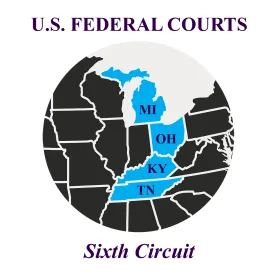When a district court faces a claim for benefits under ERISA Section 502(a)(1)(B) where it believes that mistakes were made, but the record is not sufficiently developed to award benefits, the court may remand the matter to the plan administrator for further administrative review. Remands such as this have been affirmed by circuit courts for decades, though the Supreme Court has yet to weigh in on the issue.
Nevertheless, a recent concurrence in Card v. Principal Life Insurance Company, 2021 U.S. App. LEXIS 32599 (6th Cir. Nov. 2, 2021), may indicate that at least some members of the federal judiciary are beginning to consider whether ERISA authorizes remands. In that case, the concurrence questioned why a private litigant (there, the plan administrator) would get a second bite at the apple via a remand rather than have the district court supervise additional litigation using normal rules of civil procedure.
The underlying material facts of Card are simple enough. The plaintiff sought disability benefits, which were provided by an ERISA plan and insured by the defendant. When the defendant denied the claim, the plaintiff filed suit to recover the benefits. The district court found in favor of the defendant. The Sixth Circuit reversed, finding that the defendant had not properly analyzed whether plaintiff could perform the tasks of her regular job or occupation. Rather than awarding the plaintiff benefits, the Sixth Circuit remanded the matter to the plan administrator (the defendant) for further analysis.
When the defendant did not complete its review of certain claims within 45 days (as required by ERISA regulations), the plaintiff filed a motion to reopen the case. The district court denied the motion for lack of jurisdiction, as the Sixth Circuit’s remand order remanded the matter directly to the defendant for further consideration. On appeal, the Sixth Circuit, in a per curiam opinion, vacated the district court’s order, concluding that the district court retained jurisdiction. The Sixth Circuit acknowledged that the phrasing of its prior opinion was confusing but concluded that it should be interpreted as remanding the case to the district court to retain jurisdiction while the administrator completed its review.
In short, and as the concurrence recognized, this case represents nothing more than a rote application of the law regarding remands that applies in each and every circuit, 2021 U.S. LEXIS 32599 at *13, and it corrects an ambiguity regarding the district court’s retention of jurisdiction pending completion of the plan administrator’s review.
As for the question in the concurrence about the court’s authority to remand a claim to the plan administrator, a remand is a proper exercise of a court’s remedial powers under ERISA Section 502(a), 29 U.S.C. § 1132(a). King v. Hartford Life & Accident Ins. Co., 414 F.3d 994, 1005 (8th Cir. 2005) (en banc). In addition, “ERISA trusts plan administrators to make the first determination as to the availability of benefits” and therefore “remand may be appropriate in some, or even many, cases.” Glista v. UNUM Life Ins. Co. of America, 378 F.3d 113, 132 (1st Cir. 2004); see also Conkright v. Frommert, 559 U.S. 506, 513-522 (2010) (when a plan administrator errs in its first exercise of discretion in interpreting the terms of the plan, it must be given another chance to exercise its discretion, with that second interpretation subject to deference). Indeed, the concurrence recognized that the practice of remanding to the plan administrator for further consideration is “well established” in the Sixth Circuit.
That said, the case is representative of increased attempts by the plaintiffs’ bar to convince courts to treat routine ERISA benefits cases like routine litigation. Some courts in the Ninth Circuit will allow for alternative pleading of breach of fiduciary duty claims and claims for benefits, even if the sole basis of the breach of fiduciary duty is the denial of the benefit claim. The Seventh and Ninth Circuits have concluded that state law bans on discretionary language in insurance policies apply to ERISA plan documents if the benefit at issue is insured, even if the document that is the source of discretion is not an insurance policy. And the districts are a hodge-podge of standards regarding the permissible scope of discovery when the abuse of discretion standard applies. When the de novo standard applies, depositions are not out of the question for some judges.
Thus, when faced with a claim for benefits, it is important to know the law in the proper district and to have familiarity with the plaintiff’s counsel to better understand whether the litigation will track what most practitioners would consider to be “standard,” or whether the litigation will be more akin to non-ERISA litigation.




 />i
/>i

